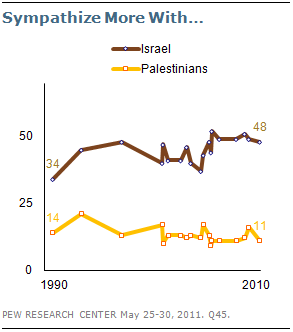Matthew Yglesias's Blog, page 2277
June 12, 2011
A Followup On The Mercatus Freedom Study
A little bit of followup on the Mercatus Center study that says Californian have drastically less freedom than South Dakotans courtesy of a reader:
I wanted to see if their index of freedom was actually linked to any positive outcomes (e.g., life expectancy, per capita GDP, industry R&D) or negative outcomes (e.g., suicides per capita, income inequality) based on Census data
.In a nutshell, the results were not good for the libertarian cause. The Mercatus Institute's freedom score was significantly linked to (by state)- lower educational attainment (measured by percent of Bachelor degrees or higher), lower population density, lower per capita GDP, increased infant mortality, increased accident mortality, increased incidence of suicide, increased firearm mortality, decreased industrial R&D, and increased income inequality.
You can see the data here. Now of course I wouldn't put too much stock in that result, either. It's just important to keep in mind that while public policy is important, it's not the be-all and end-all of human existence. New York City has a lot of regulations in place (it's generally illegal to dance in a bar, for example) but there's lots of stuff you can do there that you can't do in Indiana.


Relaxation Of Cuba Embargo Improving Cuban Living Standards
Good news. The idea that Cuban Communism constitutes some kind of threat to the United States that's best dealt with by trying to starve the island's population into oblivion makes very little sense. Hopefully the government in Havana will continue to reform, and US policy will continue to evolve in a more rational direction.


The Face of Seung-Hui Cho

Excellent news for people who like great writing: Wesley Yang's brilliant 2008 essay for n+1 "The Face of Seung-Hui Cho" is now available for download as a Kindle Single. It'll run you $1.99, which isn't much.
The essay slightly defies description, but broadly speaking it's a meditation on Virginia Tech spree killer Seung-Hui Cho leading to broader meditations on American identity. I raved when I read it three years ago and I stand by the praise.
I also see that Yang has a newish piece out "Paper Tigers" that I need to go read right now.


June 11, 2011
Rentiers And Financialization
In his column on rule by rentiers, Paul Krugman observes:
Who are these creditors I'm talking about? Not hard-working, thrifty small business owners and workers, although it serves the interests of the big players to pretend that it's all about protecting little guys who play by the rules. The reality is that both small businesses and workers are hurt far more by the weak economy than they would be by, say, modest inflation that helps promote recovery.
No, the only real beneficiaries of Pain Caucus policies (aside from the Chinese government) are the rentiers: bankers and wealthy individuals with lots of bonds in their portfolios.
But what about big business? After all, most large American firms aren't banks. They're like small businesses—they sell stuff to consumers, and thus have a large stake in consumer welfare.
Or maybe not. Back in 2001, Gerald Epstein argued in "Financialization, Rentier Interests, and Central Bank Policy" (PDF) that "in the case of the United States, financialization during the 1990′s led to a closer alignment of large industrial and financial firms in the U.S., leading to a greater emphasis by Alan Greenspan and the U.S. Federal Reserve on financial asset appreciation as a goal of monetary policy." And this does to me seem to predict the course of monetary policy after the Great Crash. For all the rising salience of goldbug cranks whining about fiat money, the Fed has hardly been indifferent to the potential for monetary expansion. It's just that the goal of monetary expansion has been to do just enough to stabilize financial asset prices without going far enough to produce catch-up growth in the labor market.
What's more, from the point of view of capital maybe it's better not to catch up. As long as growth is positive and unemployment isn't rising then maintaining a large 8-9% of the labor force out of work could be a useful tool of wage restraint.


Maybe New York Could Use Some More School Buildings
As readers know, I'm a fan of charter schools and thus no fan of the NAACP's theory that preventing high-quality minority-serving charter schools from expanding will somehow improve educational opportunities to black children. That said, it's hard to avoid noticing that this is just the nastiest and most recent of a series of charter co-location battles in New York that are all fundamentally driven by the scarcity of space. Maybe someone should start a program to finance the construction of new school buildings in cities suffering from space shortages? I hear that unemployment's really high, with a particular concentration in the construction sector. Seems like the kind of thing that could help us win the future.


The Reliable ISI
Twice in recent weeks, the United States provided Pakistan with the specific locations of insurgent bomb-making factories, only to see the militants learn their cover had been blown and vacate the sites before military action could be taken, according to U.S. and Pakistani officials. Overhead surveillance video and other information was given to Pakistani officials in mid-May, officials said, as part of a trust-building effort by the Obama administration after the killing of Osama bin Laden in a U.S. raid early last month. But Pakistani military units that arrived at the sites in the tribal areas of North and South Waziristan on June 4 found them abandoned.
Was this really trust-building or was the US government just running a test?
At any rate, the thing I've never understood about our policy in Pakistan is this. Right now, the Pakistani government gets aid money to fight violent Islamists. But obviously some share of the funds goes to support other activities. It's siphoned off for corruption, or it builds military strength vis-à-vis India, whatever. And if the violent militant groups go away, then so does the aid, right? After all, if Pakistan weren't a hotbed of dangerous extremists there'd be no reason for the US Congress to directly subsidize Pakistani government corruption or a Pakistani military standoff with India. So if you're a corrupt Pakistani official, you don't really want to solve the violent Islamist problem and if you're a patriotic and responsible Pakistani official concerned about your country's security relative to India you don't really want to solve the violent Islamist problem. So what's our answer to this supposed to be?


Death In China
By Matthew Cameron
China is well known for being the death penalty capital of the world and a recent column by Teng Biao shows that Chinese public opinion is strongly in favor of capital punishment, even for nonviolent crimes such as corruption. I suspect, however, that this isn't because Chinese people are inherently "bloodthirsty," as Biao puts it toward the end of his column. Instead, it might be a product of the general ineffectiveness of the Chinese criminal justice system:
Strictly speaking, China has no "justice," relying only on "political law" when it comes down to dealing with corrupt officials. The so-called "double regulation" (the Communist Party's special investigative procedure in which officials are asked to respond to allegations of corruption or other violations) means that sentences are delivered under the guidance of the Chinese Communist Party's discipline inspection departments, and that the code of criminal procedure is only a reference, just as the prosecution and the trial are just a semblance of justice.
It is almost unheard of for Chinese judges dealing with corruption cases to make independent judgments by relying solely on the judicial procedure, evidence submitted, and the law. Deciding whether to indict a corrupt official, and how to deal with him, is to a great extent not the result of an enactment of the law, but rather the outcome of a political power struggle.
Later in the piece, Chinese professor Hu Xing Do estimates that 99 percent of corrupt officials in China are not caught. Thinking about these circumstances for a minute, it makes perfect sense that Chinese people appreciate the death penalty: It is pretty much the only way they see criminals being punished. Moreover, Chinese authorities are happy to oblige because executions placate a populace that might otherwise challenge legal and political systems that enable insiders to become astonishingly wealthy through shady dealings.
Attempts at abolishing the death penalty – both in the United States and abroad – often focus on promoting liberal ideals and support for human rights. But activists might want to consider folding the anti-death penalty movement into a broader push at reforming criminal justice systems so that citizens actually believe in the law's efficacy without needing to be sated by state-sanctioned executions.


High Quality Preschool Is Awesome
Arthur J. Reynolds, Judy A. Temple, Suh-Ruu Ou, Irma A. Arteaga, and Barry A. B. White report on the benefits of the Child-Parent Center Education Program preschool:
Advances in understanding the effects of early education have benefited public policy and developmental science. Although preschool has demonstrated positive effects on life-course outcomes, limitations in knowledge on program scale, subgroup differences, and dosage levels have hindered progress. We report the effects of the Child-Parent Center Education Program on indicators of well-being up to 25 years later for more than 1400 participants. This established, publicly funded intervention begins in preschool and provides up to 6 years of service in inner-city Chicago schools. Relative to the comparison group receiving the usual services, program participation was independently linked to higher educational attainment, income, socioeconomic status (SES), and health insurance coverage, as well as lower rates of justice-system involvement and substance abuse. Evidence of enduring effects was strongest for preschool, especially for males and children of high school dropouts. The positive influence of 4 years or more of service was limited primarily to education and SES. Dosage within program components was mostly unrelated to outcomes. Findings demonstrate support for the enduring effects of sustained school-based early education to the end of the third decade of life.
In other words, high-quality preschool is great! In my experience, a distressing number of progressives seem to view these kind of studies as offering an alternative to talking about K-12 school quality. The real message should be the reverse. If you take to the Web, you'll be able to find plenty of studies documenting early childhood programs that don't have measurable long-term benefits. The point is that with preschool, as with other levels of schooling, there are programs that work really well and programs that don't work well. Investing in scaling up the good programs is worth spending a lot of money on.


Few Americans Sympathize With Palestinians
New Pew data confirms that the Israel lobby's strength in Congress is built on the solid foundation of widespread American lack of sympathy for the Palestinian cause:

I note again that the actual trend here runs counter to the popular media narrative, which I think overweighs the opinion of very politically engaged progressive Jewish writers rather than the broad swathe of Americans.


June 10, 2011
Mercatus Institute Study Refutes Libertarian Conception of Freedom
The Mercatus Center, a libertarian think tank, produced a study today purporting to show that New York and California are the least-free places in the United States while New Hampshire and South Dakota are the freest:

Reasonable people can disagree as to whether there's more freedom in Los Angeles or Brooklyn, and there may be good reasons to move from either place to Sioux Falls, but obviously "for the freedom" is not one of those reasons. For the lower taxes? Sure. Because there's less government regulation? Maybe so. But because there's more freedom? Clearly not. They say that they "explicitly ground our conception of freedom on an individual rights framework" but all that goes to show is that their understanding of the individual rights framework offers an unsound conception of freedom. These answers are clearly and uncontroversially mistaken. Nick Gillespie, card-carrying libertarian, wrote a good column about this six years ago back when Kansas was the allegedly freest state and New York was still the least-free.
To state the obvious, New York and California contain gigantic, prosperous, freedom-enhancing metropolitan areas to which people flock from all the world 'round. New Hampshire has a funny parody song. It's possible (I'd even say likely) that there would be even more freedom in California were the state to have less economic regulation, but that's a different issue.


Matthew Yglesias's Blog
- Matthew Yglesias's profile
- 72 followers



